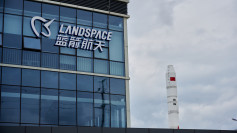Amazon and iRobot announced the termination of their previously planned acquisition deal, citing insurmountable regulatory challenges as the primary obstacle. This decision comes amidst heightened scrutiny from regulatory bodies in both the United States and Europe, concerned about the potential anti-competitive impacts of such a merger in the tech and consumer electronics sectors.
The aborted transaction, which was initially valued at approximately $1.7 billion, would have seen Amazon take over the Roomba vacuum maker. However, the European Commission's probe, initiated in July, raised substantial doubts about the deal's viability. The Commission expressed concerns that Amazon's acquisition of iRobot could unfairly disadvantage competitors on Amazon's expansive online marketplace by potentially demoting or delisting rival products.
David Zapolsky, Amazon's Senior Vice President and General Counsel, expressed disappointment over the inability to proceed with the acquisition. "We're disappointed that Amazon's acquisition of iRobot could not proceed," he stated, highlighting the unforeseen regulatory hurdles that ultimately led to the deal's collapse.
In response to these developments, iRobot announced a drastic restructuring plan, which includes laying off 31% of its workforce, approximately 350 employees. Furthermore, iRobot's Chair and CEO, Colin Angle, announced his immediate resignation, marking a significant leadership change for the company. iRobot also revealed plans to scale back its research and development spending and pause all work on "non-floorcare" products, signaling a strategic refocus on its core product lines.
As part of the termination agreement, Amazon will fulfill its obligation to pay iRobot a $94 million breakup fee. This financial settlement, while substantial, is a fraction of the deal's original valuation and reflects the complexities and financial risks associated with major corporate acquisitions in today's tightly regulated market environment.
The fallout from the failed acquisition has had immediate repercussions for iRobot, with the company's market capitalization dropping to under $400 million following the announcement. This decline is indicative of the broader market's reaction to the regulatory challenges and strategic uncertainties facing the company.
The termination of the Amazon-iRobot deal is emblematic of the broader regulatory landscape that tech giants face. Regulators globally, particularly in the European Union and the United States, have intensified their scrutiny of large technology firms, challenging acquisitions and partnerships that might stifle competition or consolidate market power excessively. This environment has led to the delay or cancellation of several high-profile deals, including Meta's acquisition of Giphy, Adobe's terminated acquisition of Figma, and Microsoft's investment in OpenAI, among others.
As iRobot navigates this new chapter, the company's focus will be on margin improvements and product innovation within its core robotic vacuum segment. The termination of the Amazon deal, while a setback, presents iRobot with an opportunity to reassess its strategic priorities and reinforce its commitment to creating intelligent home innovations.





